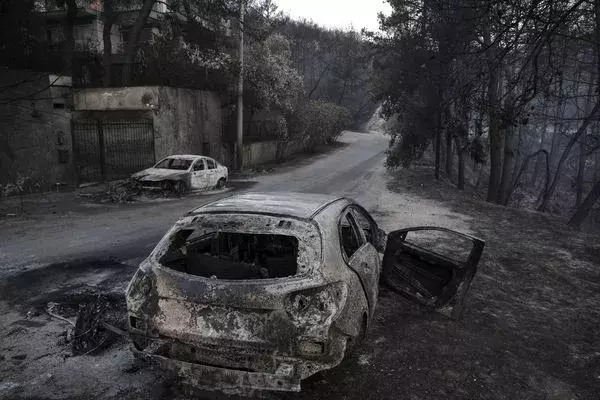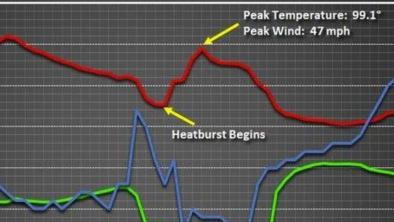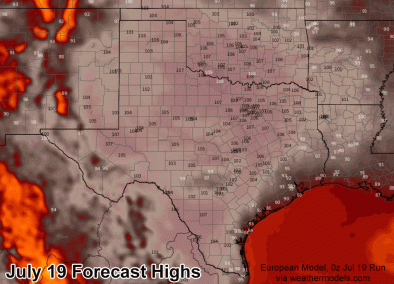Kink in the Jet Stream and Climate Change Spur Extreme Weather

Kinked, buckled, stuck or stalled, it doesn’t matter how you describe it, the jet stream -- the ribbon of wind that circles the Earth -- is doing strange things.
The calamity list includes wildfires across Scandinavia, Greece and California, record heat in Texas, Japan and Africa and flooding rains along the U.S. East Coast that could last another week. The world is hotter in general, which means when temperatures spike, they do so off a higher baseline.
“We are seeing some extreme jet-stream behavior, where the jet stream is contorting into these extreme loops both sharply towards the poles with ridges of high pressure and dips to the equator with troughs of low pressure," said Jeff Masters, co-founder of Weather Underground in Ann Arbor, Michigan. “The extreme configuration is getting stuck in place which means that places are getting long periods of extreme weather."
Globally, at least 170 people have died in fires, floods and heat on three continents. Electric markets around the world -- and the coal and natural gas that generate the power -- have spiked as days of high temperatures through Asia, North America and Europe continue to mount and weary residents turn to air conditioning to keep their misery at bay.
...
Temperature records were shattered in Japan when readings reached 106 degrees Fahrenheit (41 Celsius); Waco, Texas, hit an all-time high of 114; and Finnish Lapland touched a new mark.
The situation in Scandinavia has been “pretty mind boggling," with the Baltic Sea water rising to 15 degrees above average and Lapland north of the Arctic Circle reaching the 90s, Masters said. “That is really eye catching sort of heat."
Earlier in July, Ouargla, Algeria hit 124.3 degrees, which is the highest temperature recorded in Africa, said Kevin Trenberth, distinguished senior scientist at the National Center for Atmospheric Research in Boulder, Colorado. California and the U.S. Southwest have also had a string of temperatures at or near 120 this July.
...
Climate scientists say they have high confidence that human-driven warming is a part of the heat waves, simply because the composition of the atmosphere has changed so dramatically in the last generation or two.
“It is important to know that any heat wave has both natural and now, human causes,” said Michael Wehner, a senior staff scientist at Lawrence Berkeley National Laboratory. “So in plain language, climate change simply makes these heat waves hotter than they would have been otherwise.”
Related Content





